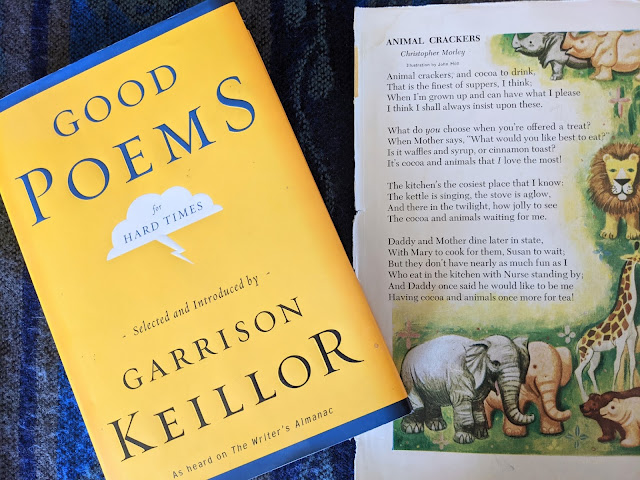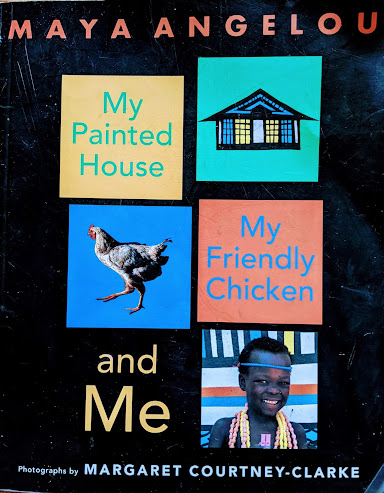RIBBONS OF MOONLIGHT
1969
RIBBONS OF MOONLIGHT
It starts with The Highwayman. A poem in Miss Abram’s class, Kings Road Primary School, Sea Point, Cape Town, South Africa.
The wind was a torrent of darkness among the gusty trees.
The moon was a ghostly galleon tossed upon cloudy seas.
The road was a ribbon of moonlight over the purple moor,
And the highwayman came riding—
Riding—riding—
The highwayman came riding, up to the old inn-door.
I’m ten-years-old and each line in that story of tragedy and doomed love by Alfred Noyes is a whole new taste and I want more.
That same year I’m taking Speech and Drama classes with Auntie Audrey, my best friend’s mother, who lives two houses away. We’re getting ready to recite our poems at an Eisteddfod, a day of music and poetry performances. We’ve practiced for weeks. My poem is On a Night of Snow by Elizabeth Coatsworth. Auntie Audrey reminds me to enunciate the ends of my words. Don’t swallow your words she says.
The poem is written from the point of view of the cat’s owner and then the cat herself. First the woman, imploring her cat not to go outside.
Cat, if you go outdoors, you must walk in the snow.
You will come back with little white shoes on your feet,
little white shoes of snow that have heels of sleet.
Stay by the fire, my Cat. Lie still, do not go.
And then there’s the cat, who sees things in a very different way.
Outdoors the wild winds blow, Mistress, and dark is the night,
strange voices cry in the trees, intoning strange lore,
and more than cats move, lit by our eyes green light,
on silent feet where the meadow grasses hang hoar -
Mistress, there are portents abroad of magic and might,
and things that are yet to be done. Open the door!
Far off in the future I will be the woman who embraces the warmth of the fire, the comfort of home, whose instinct is to protect and nurture. Right now though, my home is not one that comforts me, with my mother so sick, always in and out of hospital, and my father so impatient with me for never understanding my math problems however much he tries to explain them to me. I’m a ten-year-old tree-climbing, fast-peddling girl who needs to go where the wild winds blow. Open the door!
1994
ANIMAL CRACKERS
We live in a house behind a house in Santa Monica, California. Me, my husband, and our son and daughter, ages six and four. We have a black rabbit called Goblin and a part-time Siamese cat we call Kitty, who has conned half the neighborhood into believing we’re his special ones. This has been the year of the Northridge earthquake that tore buildings and bridges apart, shook our garage off its foundation and threw our television set across the living room. It’s been the year of homeschooling, of trying to be teacher as well as mom, and doubting myself in both roles. And it’s been the year of watching helplessly as our handsome young neighbor who lives in the front house dies from HIV-AIDS.
Thankfully it’s also been the year of library story hours, of snuggling on the sofa with the kids and piles of books. One of the books that made it across the world with me when I moved from South Africa in 1979 was The Illustrated Treasury of Children’s Literature. My children call it The Big Book. They love how you can open it on any page and there will be an illustration or story or poem to get lost in. You Are Old Father William by Lewis Carroll makes them both hysterical and there’s something about Animal Crackers by Christopher Morley that they want to keep coming back to.
One cold and rainy day we decide to have an Animal Cracker and Cocoa party, so we invite a few of their friends to the house to play and I read them all the poem. By the looks on their faces, the other kids think it’s all a bit weird (I’m a bit weird?) but there are no complaints about dipping their camels and bears into warm mugs of cocoa with lashings of whipped cream.
Animal crackers and cocoa to drink,
That is the finest of suppers I think;
When I'm grown up and can have what I please
I think I shall always insist upon these.
What do YOU choose when you're offered a treat?
When Mother says, "What would you like best to eat?"
Is it waffles and syrup, or cinnamon toast?
It's cocoa and animals that I love most!
2008
REST AT COOL EVENING
May Sarton calls poetry “the soul making tool.” Where more so than at the Salvation Army homeless shelter in Escondido? There are eight of us on this particular night. There's Juan, a young man who writes poetry in spiral notebooks that he carries around in a torn canvas backpack. His favorite poet is Langston Hughes and he asks if I can bring in some of Hughes' poetry to share with the group. I do and I also get him a copy for himself. A thin, excitable man with wild white hair, who goes by the name of Algebra is another regular. He has unusual ideas about the concept of time and has spent years inventing new rules for chess. Dennis and Sandra are a friendly middle-aged couple, and Bear, their sweet golden lab lies under the table and warns Dennis if he's about to have a seizure. It's hard to tell how old Roy is. Although he looks tired and frail and is very shy, his art and poetry are saturated with color and hope. Then there's Bobby, a Vietnam veteran who prefers not to talk but loves reading his poetry out loud in his deep, melodious voice. The food his grandma used to make him features in many of his poems.
The two of us who aren’t homeless arrive once a week with a bunch of flowers, two packets of Pepperidge Farm Milano cookies, some tangerines from a neighbor’s grove and a thermos of hot water and tea bags. Tama, who is an art therapist as well as my friend and neighbor, brings the paints, glue sticks and collage materials, and I bring the poetry.
Outside our room we hear people lining up for a hot shower. Everyone has to get tested for alcohol and drugs before they can spend the night -- and I can't begin to imagine the courage it must take to get through a night in a homeless shelter after a day on the streets, without being able to soften the edges with a beer or glass of wine. At five in the morning they have to wake up and leave the shelter by six.
We are different ages, races, cultures, genders but all those differences fall by the wayside for the couple of hours we get to be together, making art and writing. Each week I bring in a different poem and read it. Sometimes we talk about it and sometimes there doesn’t seem to be much to say. Juan insists that if they are going to write and share their poems, I need to too. So I do. Some prefer to work with the art materials that Tama brings in. There are no rights or wrongs. Just be honest, just be yourself, I tell them. Spelling and grammar don’t matter.
Everyone's poetry is better than good. It’s nourishing. We encourage one another. We laugh together. We enjoy one another’s company. And Bear the service dog falls asleep and snores softy under the table.
Dream Variations
Langston Hughes
To fling my arms wide
In some place of the sun,
To whirl and to dance
Till the white day is done.
Then rest at cool evening
Beneath a tall tree
While night comes on gently.
Dark like me –
That is my dream!
To fling my arms wide
In the face of the sun,
Dance! Whirl! Whirl!
Till the quick day is done.
Rest at pale evening…
A tall, slim tree…
Night coming tenderly
Black like me.
2021
A NEW DAWN BLOOMS
Somehow we’ve weathered and witnessed
A nation that isn’t broken,
but simply unfinished.
We the successors of a country and a time
where a skinny Black girl
descended from slaves and raised by a single mother
can dream of becoming president
only to find herself reciting for one.
The world is alight with the brilliance and soulfulness of a 22-year-old girl in a canary yellow jacket. Amanda Gorman is our new poet laureate, the youngest ever.
Many of us have weathered and witnessed things we never dreamed we would this past year, and have been struggling with isolation, loss, fear and exhaustion -- not only from living through the time warp of a pandemic but living in a nation pummeled by hate. We're in mourning for so many things.
Until this moment our nation has felt more broken than unfinished, but with message of The Hill We Climb and the bold, brave presence of this skinny Black girl, descended from slaves comes an unexpected lifting of a load so heavy and oppressive, we didn't even realize we were carrying it.
Of course I know our troubles and differences are not over -- not even close -- but for now, as I watch her and listen, all I can see is what is possible when our young people are taken seriously and their creativity is allowed to bloom. Her presence is a reminder that we need to make ourselves better for them. For all of them.
Links to the poems:
https://www.poetryfoundation.org/poems/43187/the-highwayman
https://allpoetry.com/On-A-Night-of-Snow
https://allpoetry.com/Father-William
https://allpoetry.com/Animal-Crackers
https://poets.org/poem/dream-variations
https://www.cnbc.com/2021/01/20/amanda-gormans-inaugural-poem-the-hill-we-climb-full-text.html





Bravo! Mahalo! Mel and I love your blog. I read it to him. Moments of joy and remembering.
ReplyDeleteThank you, Barbara and Mel! Mel, you were very much with me when I wrote about our time at the Salvation Army Homeless Shelter.
DeleteI was captured by the The Highwayman and a rush of memories of school and learning this in class. Beautiful images! Thank you Brigid.
ReplyDeleteI love that, Vivienne! I bet we have many similar poetry and school experiences.
Delete